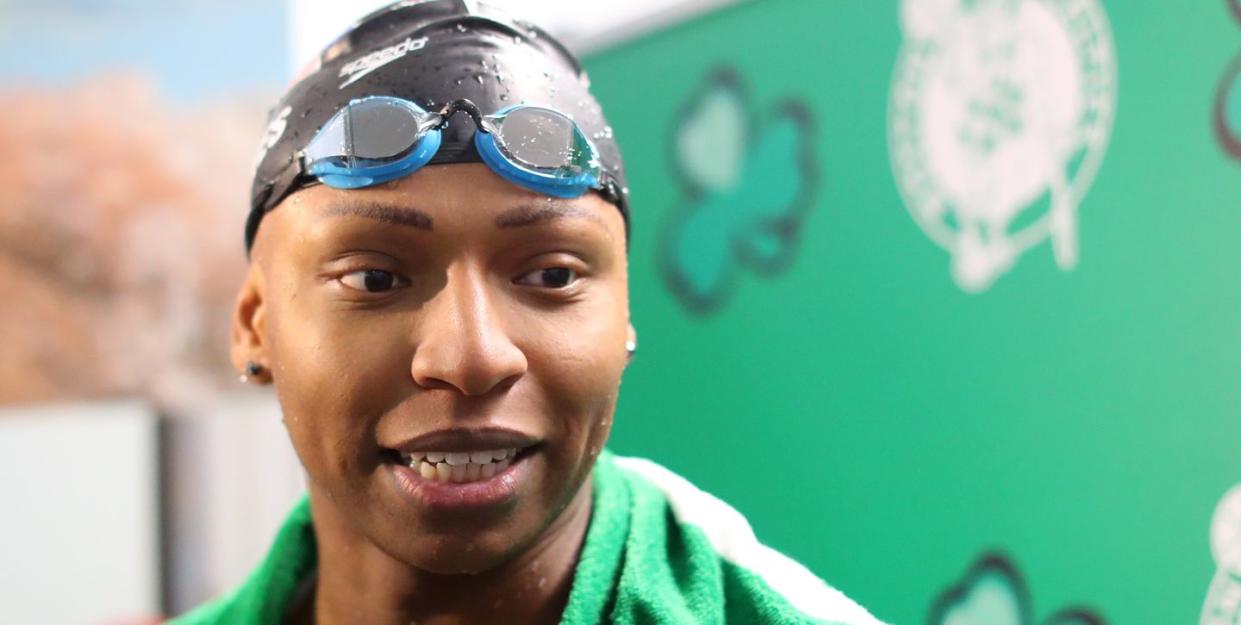What Olympian Cullen Jones Learned About Swimming—and Winning—While Black

It was my mom who insisted I learn to swim. I was five when I nearly drowned in a water park, and next thing I knew I was swimming with a diverse team in Newark, New Jersey. My parents worked, so sometimes I had to take two buses to get to practice every day, but I loved it. Everyone else around me was playing basketball, playing football, doing all these…I’m not gonna say stereotyped, but normal Black sports. And there I was: a swimmer. Later, I was on an all-Jewish team at a JCC, and I never felt an ounce of racism being the only Black kid.
I was 16 the first time I had someone say something to me. It was at a swim meet. I had just won the 50-meter freestyle. I was so excited. I walked up to my parents and was like, “I did it!” And then this mom came by me and said, “Shouldn’t you be playing basketball?” and walked off. My mom—she’s my rock—was about to yank that woman. But my dad grabbed her, came to me, and said, “I’m gonna be honest with you, Cullen. That is what racism is. Because of the color of your skin, she thinks you should be doing a stereotypical Black sport. Swimming is a white-dominated sport, son. The real reason she was upset is because you beat her son.”
Today you’d tell your child, “Say something! Don’t take that!” Instead, my parents instructed me not necessarily to fight back in the sense of responding but to keep my head focused on what my goal was. It wasn’t “Don’t talk about it.” It was “Don’t let that stop you.” This would push me through. I went to a college where I was the only Black swimmer until my senior year, for good, bad, and indifferent. Most of the time I was there, I was happy. And then on Team USA, I flourished and met some of the best friends of my life.
But a lot of Black kids haven’t been invited to swim. It goes back to everything that’s going on in terms of systemic racism. Black people weren’t allowed to go to the pool, and we still don’t believe we as Black people swim. That’s why it’s so important to have initiatives like Make a Splash. I’ve been the face of this organization for 12 years, and we’ve taught millions of kids to swim, which has helped reduce the number of African-Americans with little or no swimming ability from 70 percent in 2007 to 64 percent today—a shift I never would have thought I’d see in my lifetime.
You Might Also Like

